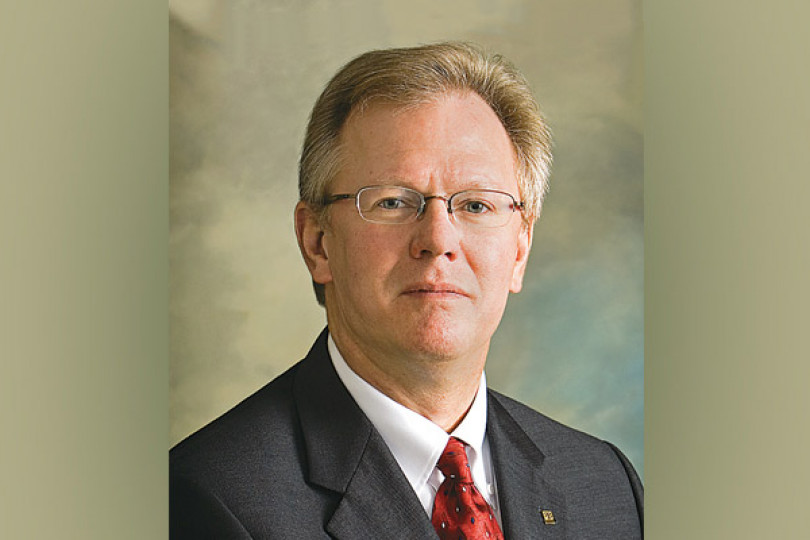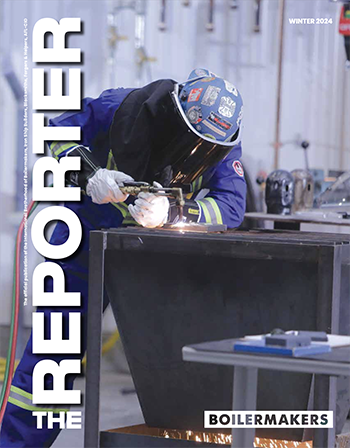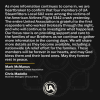Bush vowed to protect the American people, but his policies protect only the rich
IN POLITICS, YOU LEARN early that you can’t judge a candidate by his words. Every candidate says we need a strong economy, good schools, and affordable health care. Every candidate says he hates terrorism, loves economic opportunity, and wants to provide a comfortable retirement for our senior citizens.
To choose between the candidates, we must look at their actions and their proposals, not their sentiments and their promises.
Accepting his nomination at the Republican National Convention, George W. Bush said many things that I believe we all agree with.
He said, “I believe the most solemn duty of the American president is to protect the American people. . . .
“I believe in the energy and innovative spirit of America’s workers. . . .
“I believe we have a moral responsibility to honor America’s seniors.”
I would not argue with a single one of those sentiments. I would only ask, What do you plan to do about them? How will you lead our country?
Only one day after this speech, Bush raised Medicare premiums by 17 percent. Is this how we honor our seniors?
He also vowed to privatize Social Security, endangering the only guaranteed retirement income that most working Americans have. What happened to that moral responsibility he spoke of?
Bush said he believes in the energy and innovative spirit of America’s workers, yet his Economic Report for 2004 called outsourcing “a good idea.” The average displaced worker takes a 21 percent pay cut when their job is outsourced. You’re going to need a lot of that energy he spoke of to work 21 percent more hours so you can stay even when your job is outsourced.
And what about overtime? Bush’s new rules that went into effect August 23 took that option away from 6 million workers. They will need to be doubly innovative to make ends meet now.
Bush said that the president’s “most solemn duty” is to “protect the American people,” but his record says something else again.
Bush has protected the Enrons and MCI/Worldcom’s in our society, not the employees of those companies who lose their pensions to bogus accounting schemes. He protects companies that incorporate offshore to avoid paying taxes, but not the working taxpayers in this country.
Kerry's AFL-CIO record is 91%. Bush's is zero.
Bush’s Medicare drug program protects drug companies from the foreign “threat” of Canadian imports, but does nothing to protect seniors from the economic ravages of rising drug costs. The law doesn’t even allow Medicare to use its millions of retirees to negotiate lower prices, the way the Veterans Administration does.
Bush’s tax reforms protect corporations and the wealthy from the inconvenience of paying taxes, but they do not protect American families and small businesses from the growing burden of federal budget deficits.
Bush’s appointees to OSHA and the NLRB are more interested in “protecting” corporations from complying with safety laws or bargaining with unionized employees than they are in workplace safety or workers’ rights.
And the federal judges he has appointed show a clear pattern of favoring corporate interests over the interests of workers and their families.
This last point is an especially troubling one. Federal judges serve for life. Dozens are appointed every year.
If re-elected, Bush may also get to appoint one or more Supreme Court justices. The judges Bush appoints will render legal decisions for decades after he is out of office.
John Kerry provides a stark contrast. Throughout his career, Kerry has proposed, co-sponsored, and voted for laws that improve the lives of working families. As president, he will be able to accomplish even more.
Kerry will give working families a voice in future trade agreements by putting a labor representative in the room during negotiations.
Kerry’s health care plan will lower family premiums by up to $1,000 a year, lower the cost of prescription drugs, and extend affordable, high-quality coverage to 95 percent of Americans, including every child.
Kerry was an early co-sponsor and strongly supports the Employee Free Choice Act, which will ensure that when a majority of employees in a workplace decide to form a union, they can do so without the obstacles employers now use to block their workers’ free choice.
How do we know he will follow through on these promises?
Because he always has in the past.
Kerry has a 91 percent AFL-CIO voting record. Kerry has never “flipflopped” when it comes to workers.
Bush’s record is a big, fat zero.
Don’t be fooled by those campaign ads that distort these records. Political analysts at the AFL-CIO follow every single vote in Congress and every proposal by the president. When they tell me that one candidate has supported workers 91 percent of the time and the other has set records for the number of anti-worker executive orders, proposed bills, rule changes, and political and judicial appointments, I have no difficulty deciding who to vote for.
But I know that choice is not easy for all of our members, and I do not want you to take your voting responsibility lightly. When we vote, we are not only electing candidates, we are also determining what direction this country will take over the next four years.
Examine their records and ask yourself which candidate is more likely to lead this country in a direction that will be good for working families and for the future of our great nation.
If you want to continue to allow healthcare, insurance, and drug companies to raise prices, help corporations move more jobs overseas, weaken workers’ rights, increase the national debt to intolerable levels, and privatize Social Security, then vote for George W. Bush.
That is what he he has been doing as governor of Texas and president of the United States, and that is what he will continue to do.
If you want to keep health care costs down, strengthen workers rights, protect Social Security and Medicare, and encourage corporations to keep jobs in the United States, then vote for John Kerry. That is what he has been fighting for during his entire political career of more than 20 years, and that is what he will continue to do.






